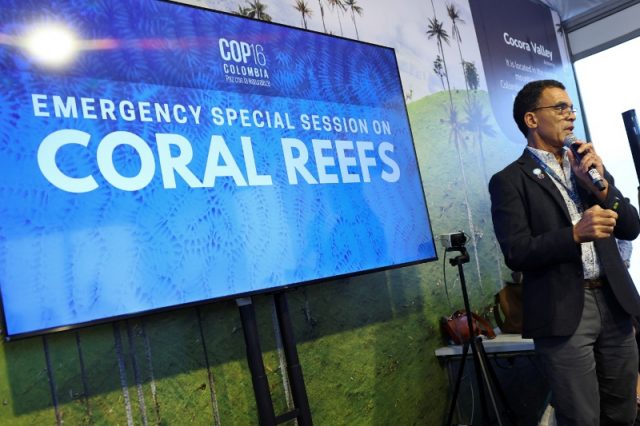
CALI, Colombia — The United Nations and coastal countries warned on Wednesday that the world’s coral reefs are being devastated by the effects of warming oceans and urged nations to increase funding for urgent efforts to save them.
They held an emergency special session alongside the U.N. COP16 talks on biodiversity in response to corals globally experiencing their worst bleaching on record.
U.N. special sessions are typically called in response to humanitarian emergencies related to war or natural disasters.
“We’re approaching this point where the planet may lose its first planetary ecosystem,” said Peter Thomson, the U.N. special envoy for oceans
“Coral is the first to go if we continue down the track that we’re on at the present.”
As climate change increases ocean temperatures, corals are experiencing more heat stress that causes them to expel the colorful algae living in their skin, turning them white in a phenomenon known as bleaching. Without the algae, corals are vulnerable to starvation, disease and death.
The current coral bleaching event that began in February 2023 is the worst on record, with 77% of corals experiencing bleaching, according to the U.S. National Oceanic and Atmospheric Administration.
Experts and country representatives on Wednesday discussed efforts to save reefs including by preventing overfishing, identifying corals that better resist heat and establishing marine protected areas.
“We are at the frontlines in the fight to save coral reefs and we must take action now,” said Ilima Kloulchad, an environmental official from the island nation of Palau.
The session was intended to push countries to contribute more money to a global fund for coral reefs after $30 million in new pledges at this week’s COP meetings fell short of hopes.
“We’ve heard the solutions today … but what’s the missing ingredient? The missing ingredient is money,” Thomson said.
—Reporting by Jake Spring; Editing by Cynthia Osterman









